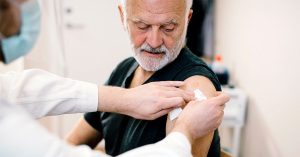Qu'est-ce que l'épidémiologie et que fait un épidémiologiste ?
[wp_show_posts id=”2959″]
**Question: What is Epidemiology?**
**Answer:** Epidemiology is the study of the distribution and patterns of health events and diseases in a population. It investigates the causes of these patterns and the factors that influence them, with the ultimate goal of preventing and controlling diseases. Epidemiologists play a crucial role in understanding the spread and impact of diseases, informing public health policies, and developing preventive measures to protect populations.
**Keywords:** epidemiology, public health, disease patterns, health events, prevention, control
**Question: What Does an Epidemiologist Do?**
**Answer:** Epidemiologists conduct various activities to study and understand health patterns and diseases. Their responsibilities include:
– **Evaluating Health Data:** They analyze and interpret health data from various sources, including vital statistics, medical records, laboratory reports, surveys, and registries.
– **Identifying Health Trends:** By examining health data, epidemiologists identify trends and patterns of diseases, injuries, and other health-related events in a population.
– **Determining Disease Causes:** Epidemiologists investigate the factors that contribute to the occurrence and spread of diseases, such as environmental factors, behavioral patterns, social determinants, and genetic predispositions.
– **Assessing Risk Factors:** They evaluate the relationships between risk factors and health outcomes to determine which factors increase an individual’s likelihood of developing a particular disease.
– **Developing Prevention Strategies:** Based on their research findings, epidemiologists help develop and implement preventive measures, interventions, and policies to reduce the risk of diseases and improve overall public health.
– **Outbreak Investigations:** During disease outbreaks, epidemiologists conduct investigations to identify the source of the outbreak, track its spread, and recommend containment and control measures.
– **Educating Public and Policymakers:** Epidemiologists also play a key role in educating the public and policymakers about health risks, disease patterns, and preventive strategies, helping to shape public health policies and programs.
**Keywords:** epidemiologist, disease patterns, health trends, risk assessment, prevention strategies, public health policies, outbreak investigations
**Question: What is Epidemiology?**
**Answer:** Epidemiology is the study of the distribution and patterns of health events and diseases in a population. It investigates the causes of these patterns and the factors that influence them, with the ultimate goal of preventing and controlling diseases. Epidemiologists play a crucial role in understanding the spread and impact of diseases, informing public health policies, and developing preventive measures to protect populations.
**Keywords:** epidemiology, public health, disease patterns, health events, prevention, control
**Question: What Does an Epidemiologist Do?**
**Answer:** Epidemiologists conduct various activities to study and understand health patterns and diseases. Their responsibilities include:
– **Evaluating Health Data:** They analyze and interpret health data from various sources, including vital statistics, medical records, laboratory reports, surveys, and registries.
– **Identifying Health Trends:** By examining health data, epidemiologists identify trends and patterns of diseases, injuries, and other health-related events in a population.
– **Determining Disease Causes:** Epidemiologists investigate the factors that contribute to the occurrence and spread of diseases, such as environmental factors, behavioral patterns, social determinants, and genetic predispositions.
– **Assessing Risk Factors:** They evaluate the relationships between risk factors and health outcomes to determine which factors increase an individual’s likelihood of developing a particular disease.
– **Developing Prevention Strategies:** Based on their research findings, epidemiologists help develop and implement preventive measures, interventions, and policies to reduce the risk of diseases and improve overall public health.
– **Outbreak Investigations:** During disease outbreaks, epidemiologists conduct investigations to identify the source of the outbreak, track its spread, and recommend containment and control measures.
– **Educating Public and Policymakers:** Epidemiologists also play a key role in educating the public and policymakers about health risks, disease patterns, and preventive strategies, helping to shape public health policies and programs.
**Keywords:** epidemiologist, disease patterns, health trends, risk assessment, prevention strategies, public health policies, outbreak investigations







